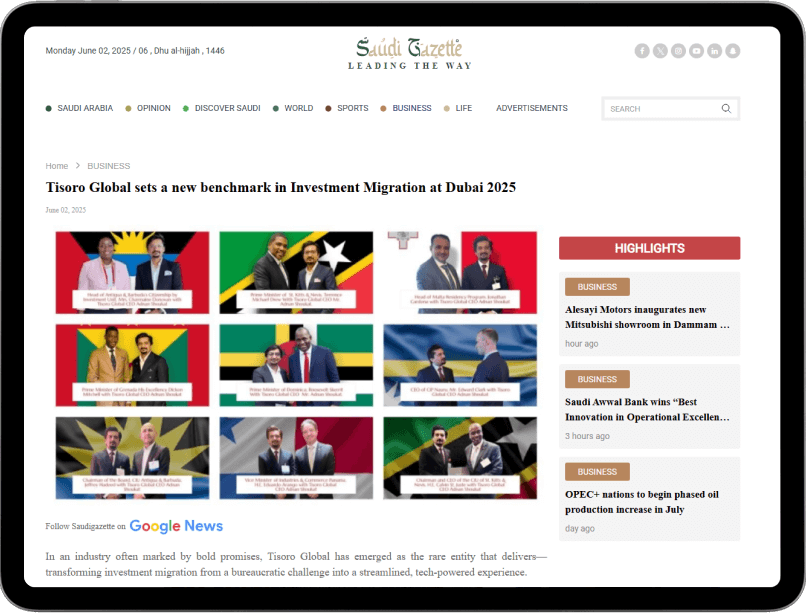St. Lucia’s Citizenship by Investment (CBI) program has played a pivotal role in driving economic growth and development on the island. Launched in 2015, the program was designed to attract foreign direct investment and bolster the national economy by creating new revenue streams. In 2024, the positive impact of St. Lucia’s CBI program on economic growth is evident across various sectors, including infrastructure, tourism, real estate, and public services. This article explores how the CBI program contributes to the island’s prosperity and why it continues to be a critical component of St. Lucia’s economic strategy.
One of the most significant ways the CBI program boosts economic growth is through the direct financial contributions made by investors. These funds are channeled into the National Economic Fund (NEF), which serves as a vehicle for supporting government-led development projects. The NEF has been instrumental in financing infrastructure improvements such as roads, bridges, and public facilities. These enhancements not only improve the quality of life for residents but also create a more attractive environment for businesses and tourists, driving further economic activity.
The CBI program has also been a catalyst for job creation in St. Lucia. The influx of capital has enabled the expansion of key industries, particularly construction and real estate. Government-approved real estate projects, funded in part by CBI investments, have led to the development of luxury resorts, residential communities, and commercial properties. These projects generate employment opportunities for a wide range of professionals, from construction workers and architects to property managers and hospitality staff. The increase in job availability helps reduce unemployment rates and stimulates local spending, contributing to a more vibrant economy.
Tourism, a cornerstone of St. Lucia’s economy, has greatly benefited from the CBI program. Investments in tourism-related real estate and infrastructure have enhanced the island’s reputation as a premier travel destination. The construction of luxury accommodations and resorts, supported by CBI funding, has attracted more high-end travelers, leading to increased tourism revenue. This growth in the tourism sector creates a ripple effect, benefiting local businesses such as restaurants, shops, and tour operators. The steady flow of tourists bolsters the overall economic stability of the island and supports continuous growth.
The real estate market in St. Lucia has experienced significant growth due to the CBI program. Investors looking to secure citizenship through real estate purchases have driven demand for high-quality properties, leading to increased development and property values. This has attracted not only foreign investors but also local developers who see opportunities for growth and collaboration. The expansion of the real estate sector contributes to the overall economic landscape by generating revenue and promoting the development of modern, sustainable communities that align with global standards.
Public services and social programs have also benefited from the revenue generated by the CBI program. The government allocates funds from the NEF to support essential services such as healthcare and education. Investments in healthcare infrastructure have resulted in the construction and improvement of medical facilities, ensuring that residents have access to quality care. Similarly, funding for education has supported the development of schools and learning programs that equip local students with the skills needed for future success. These investments in human capital contribute to a more educated and healthier workforce, which is vital for sustaining economic growth.
St. Lucia’s CBI program has also enhanced the island’s resilience to external economic shocks. By diversifying revenue sources, the government can rely on CBI funds to maintain public services and continue development projects, even during periods of economic downturns or natural disasters. This financial stability provides a safety net that helps safeguard the country’s long-term prosperity and reduces its dependence on any single industry, such as tourism, which can be vulnerable to global market fluctuations.
The positive impact of the CBI program extends beyond economic metrics to include social and environmental benefits. The program has funded initiatives that promote environmental sustainability and conservation. Projects aimed at protecting St. Lucia’s natural resources, such as reforestation efforts and eco-friendly tourism practices, have been supported by CBI contributions. This commitment to sustainability helps preserve the island’s natural beauty and ensures that its economic growth does not come at the expense of the environment. For investors who prioritize socially responsible practices, St. Lucia’s focus on sustainability is an appealing aspect of the CBI program The program’s emphasis on transparency and due diligence has also contributed to its success. The government’s rigorous vetting process ensures that only reputable and qualified applicants are approved for citizenship. This commitment to maintaining high standards helps protect the integrity of the program and reinforces confidence among investors and the international community. The trust that the CBI program has built over the years has attracted more high-quality investors who are eager to contribute to the country’s growth..
The strategic use of CBI funds for public and private sector projects has created a cycle of growth that benefits both new citizens and long-standing residents. The revenue generated from the program is reinvested into the local economy, creating opportunities for business development, job creation, and social progress. This reinvestment strategy ensures that the advantages of the CBI program are shared widely, contributing to a sense of community and shared prosperity. St. Lucia’s strategic location in the Eastern Caribbean further amplifies the economic benefits of the CBI program. The island’s accessibility to major markets in North and South America, as well as Europe, makes it an attractive hub for business and tourism. The connectivity supports a dynamic economy that can leverage the benefits of global trade and investment, enhancing the appeal of the CBI program to international investors.
In conclusion, St. Lucia’s Citizenship by Investment program has proven to be a powerful driver of economic growth. By attracting foreign investment, the program has supported infrastructure development, job creation, and social programs that benefit the entire nation. The positive impact on tourism, real estate, and public services underscores the program’s importance as a cornerstone of St. Lucia’s economic strategy. With its commitment to transparency, sustainability, and inclusive growth, the CBI program continues to contribute to a prosperous and resilient future for St. Lucia. For investors seeking both personal benefits and the opportunity to contribute to meaningful development, St. Lucia’s CBI program remains an exceptional choice.






































